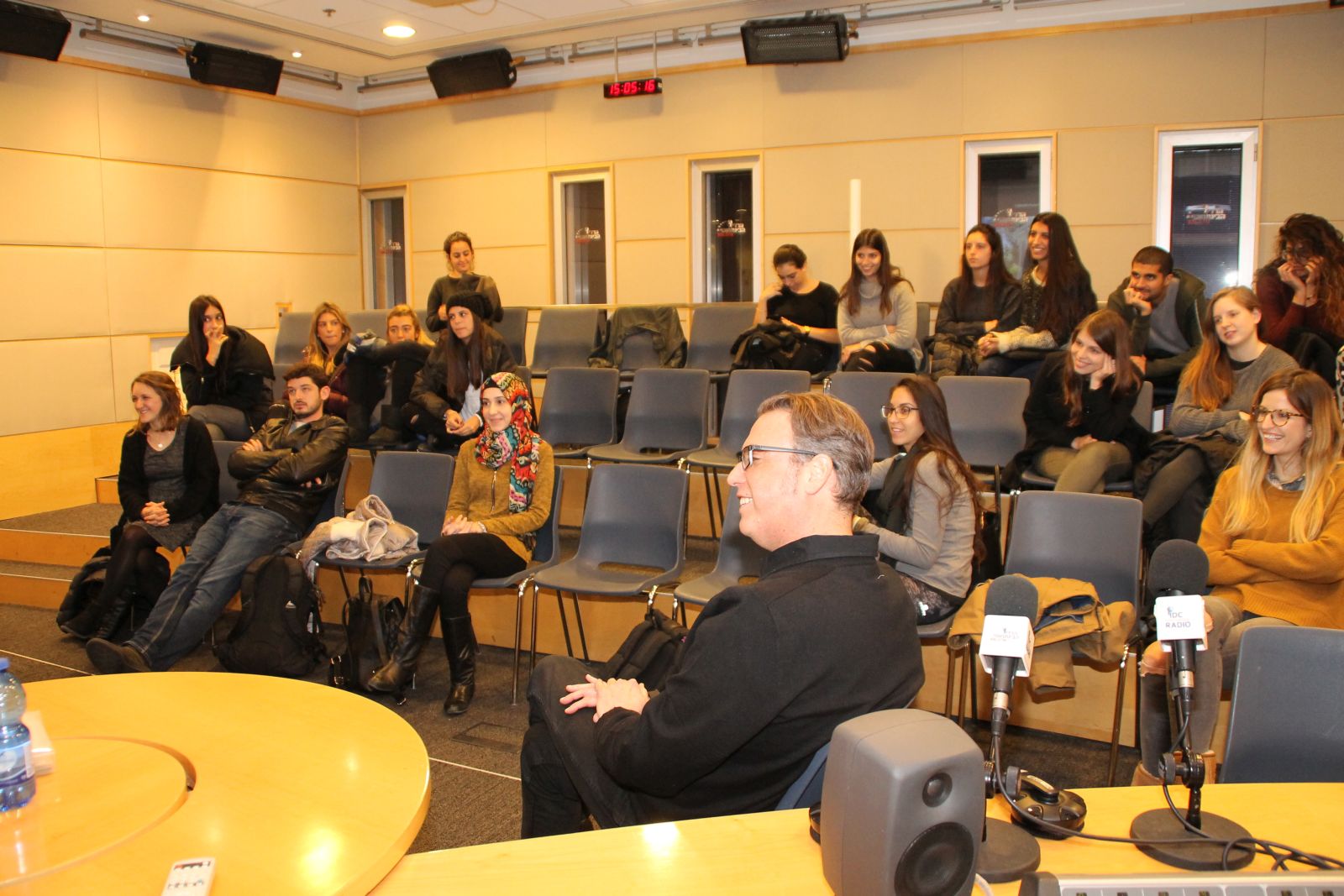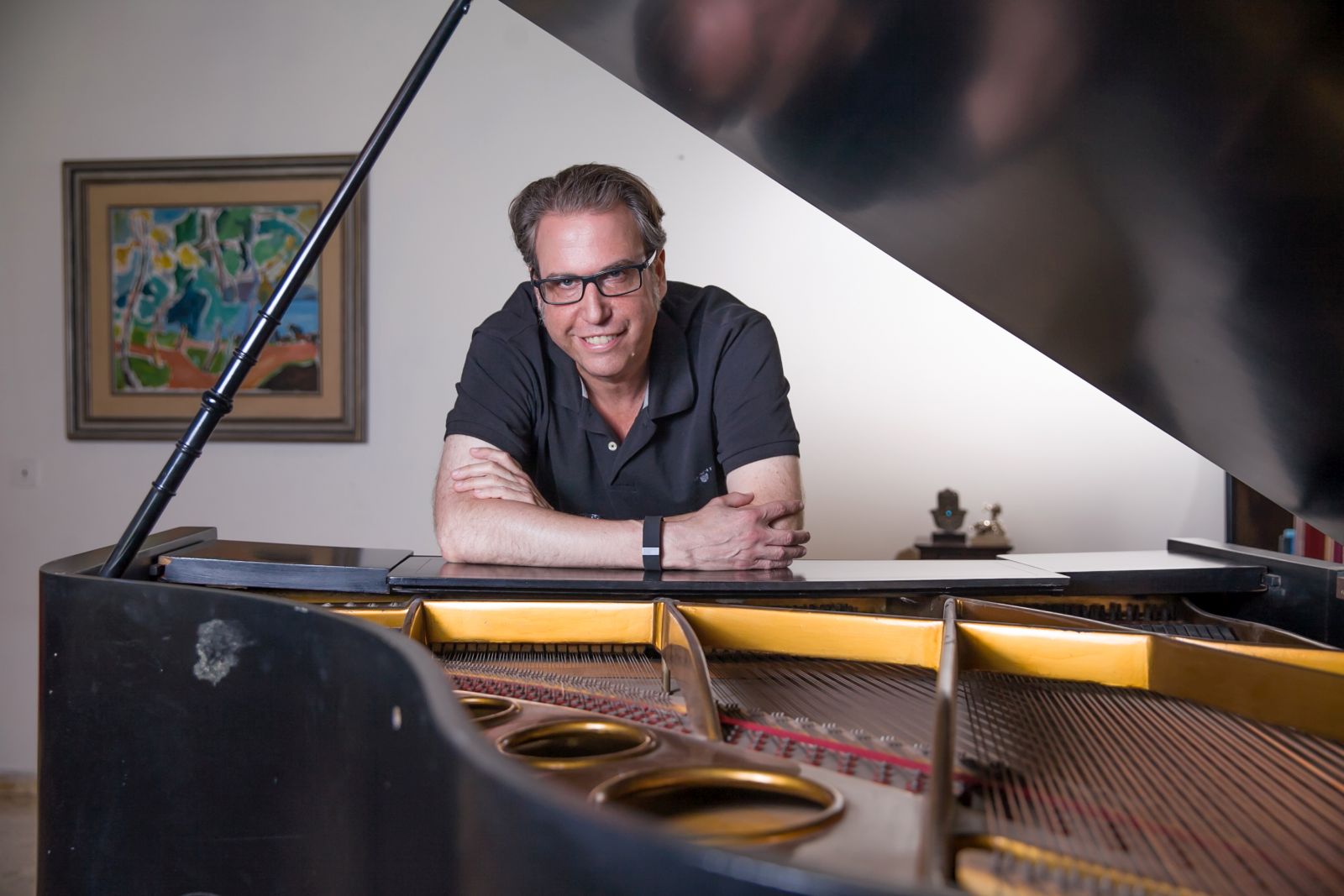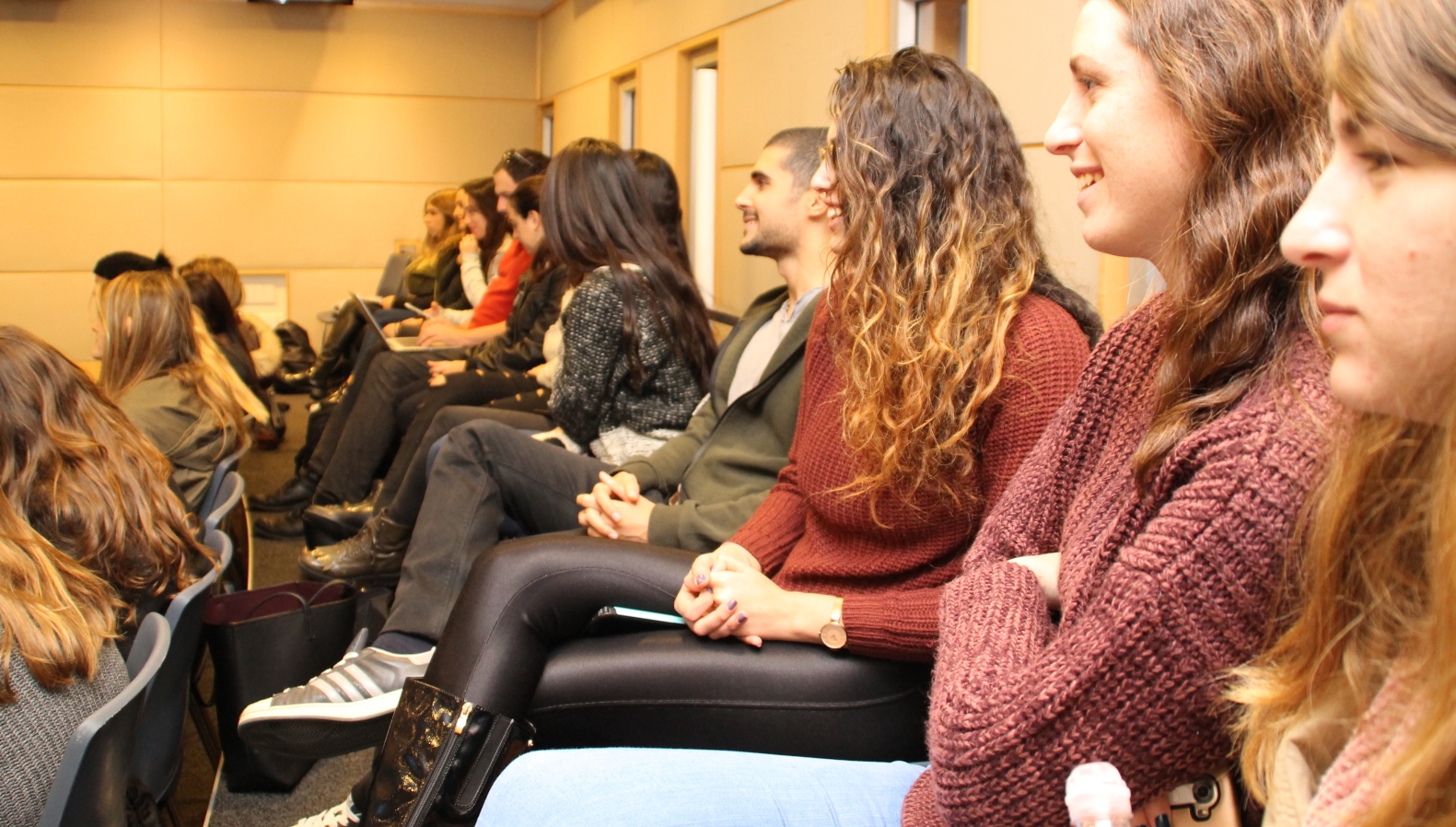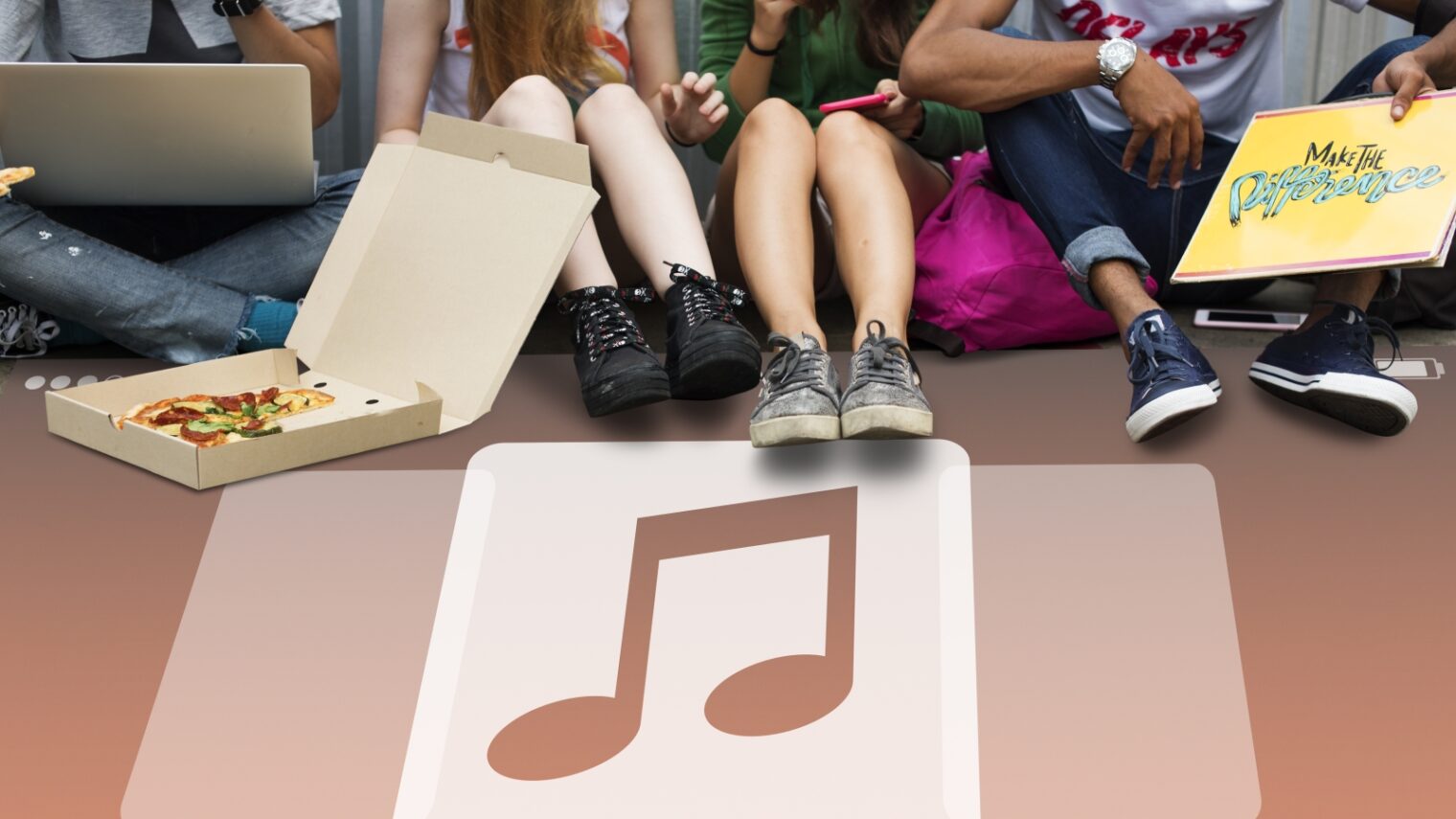Music is a dialogue between composer and lyricist, between performer and audience. Prize-winning Israeli composer/conductor Ori Leshman is proving that it can also create a dialogue between generations, cultures and nations.
His unique 13-week Music for Dialogue workshops held at the School of Communications at the Interdisciplinary Center (IDC) Herzliya, where he is a lecturer, are offered to the school’s entire student body of secular and religious Jewish and Arab students of different ethnicities.
“My vision is to use music as a kind of emotional technology tool to create dialogue beyond the music, to unite people, overcome barriers, and improve society in Israel and abroad,” Leshman tells ISRAEL21c.
Online registration closes automatically once 32 students have signed up, so it’s first-come, first-served and participants are a random mix. Leshman says there’s a long waiting list. “It’s unbelievable how many students want to participate.”
Before their first weekly Music for Dialogue meeting, students enter their favorite songs and genres on the website Pick-A-Music, conceived by Leshman as a social platform for sharing musical tastes and inspiring the group activities that are part of the Music for Dialogue experience.
“Then, in the workshop, everyone gets equal time to speak about his or her choices in Pick-A-Music,” says Leshman. “Immediately you see that the group is open to the speaker. Something amazing happens and we begin to speak intimately.”

One Arab-Israeli young woman named Eden describes in her Pick-A-Music entry how her traditional Muslim attire has subjected her to suspicion and racism. Explaining her choice of song, a piece by Humood Alkhudher-Qiyam, she writes:
“The song begins with the fact that we came from Adam and Eve and with the fact that the most beautiful things that we have as humans are mercy, love, kindness and the tendency to be good. It goes on and says that together we could do things better, for example by using common values from religion, no matter what color we are, no matter if one is wealthy or poor; we need to respect one another. The words of this song inspire me and relate to my situation in life. The song gives me the feeling that we all have the power and ability to change the present.”
And, Eden adds, “I am starting to understand that music is one of the things that brings us together despite the differences. Music really is a tool for peace, serenity and relaxation.”
One young man had been having religious conflicts with his mother, but sharing their favorite music caused a shift. “Suddenly they had to communicate through music and magic happened — they started their relationship again. This exercise allows you to see how close you really are to others,” says Leshman.
Two rounds of Music for Dialogue have been held at IDC and more are planned.
The program was introduced this year to about 70 Jewish and Arab high school students in the northern city of Ma’alot-Tarshiha, and at Ono Academic College in Kiryat Ono, where Leshem also teaches. In addition, Leshman has been asked to bring Music for Dialogue to a mixed group of teachers in Beersheva.

Bridging the generation gap
Music for Dialogue was inspired by “Music as a tool for conflict resolution,” an educational program developed by Israeli entrepreneur Aviad Meitar during his year-long Advanced Leadership Initiative program at Harvard University. Its first focus was the Arab and Jewish sectors within Israel.
Leshman, who is the artistic director of the annual Sounds of Childhood three-day intergenerational arts festival in Holon, envisioned the Music for Dialogue model to be a bridge between generations and not only between people of different religions and ethnicities.
Last year he asked a group of Ramat Gan third-graders, their parents and grandparents to enter their favorite children’s songs on Pick-A-Music and used it as a jumping-off point for discussion.
“It was fantastic. Afterward we took it from the virtual world to the real world with a big party where we sang those songs together with the parents and grandparents,” says Leshman.
Workshop participants often surprise one another with their musical preferences. “We see that we mustn’t judge people. They’re much more complex than we think, as are their musical identities.”

Leshman, who has a doctorate from Bar-Ilan University, has begun a large research project on the effects of Music for Dialogue. He is gathering fascinating insights about how people relate to music.
“Arab students, for example, are amazed to discover how much Arabic music went into the website from Jewish students of Middle Eastern and North African heritage. Many of the students talk about music as a kind of home no matter where you are; a kind of friend that is always there for you.”
He is not naïve enough to believe that Music for Dialogue can solve all the problems between populations that live so close to one another but rarely interact.
The idea is “Let’s first get to know one another as human beings, and music is an amazing tool for that,” he says.














